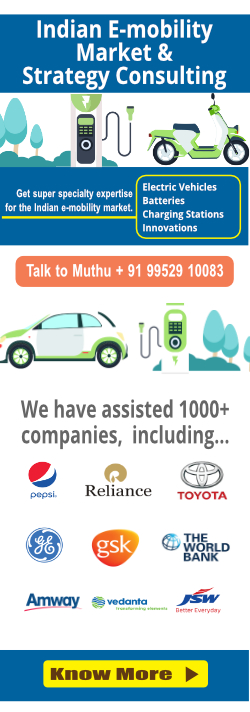![]() This post is a part of BioBiz’s Bio-CNG Perspectives.
This post is a part of BioBiz’s Bio-CNG Perspectives.
BioBiz, a division of EAI, is a leading market intelligence & strategic consulting firm for the Indian bio-based sectors.
This blog post uses the terms bio-CNG and renewable natural gas (RNG) interchangeably.
Bio-CNG or bio-compressed natural gas, also known as sustainable natural gas or biomethane, is a biogas which has been upgraded to a quality similar to fossil natural gas and having a methane concentration of 90% or greater. As the gas is derived from natural and renewable sources, it is also termed renewable natural gas (RNG).
Introduction
Reliable feedstock sourcing is critical for successful waste to energy plants. However, in the case of large scale RNG projects, feedstock sourcing has several challenges. Almost all feedstock sources – commercial, industrial and agro wastes possess challenges in the feedstock supply chain and accessibility. This section provides details on the key challenges observed in sourcing feedstock for RNG plants and possible avenues to overcome.
Challenges in sourcing feedstock
While there is enough feedstock available for millions of tons of renewable natural gas production annually, accessibility and affordability are two key bottlenecks. For instance, in the case of waste from commercial sectors, while 50,000 tons of food & vegetable waste is available every day in the top fifty urban areas of India, the distributed nature of these sources (a medium sized restaurant generates only about 100 kg of waste per day) and the unorganized processes of the sector in dealing with such waste (lack of segregation at source for example), make feedstock logistics a tedious and/or expensive process. Thus, while food waste might be available for a minimal cost at source, expenses for collecting, processing and transporting could add up to a significant cost.
In the case of feedstock from more organized industrial sectors, while access and logistics are much less of a challenge, the uncertainty of long-term supplies could constitute bottlenecks. Unless the sources (say, sugar mills or paper mills) are willing to sign long term contracts (which many of them might be hesitant to), the RNG project developer is left to the mercy of the whims of the management of the biomass source companies.
In some other cases, the very process of “collecting” the feedstock could pose a challenge. Take the oft-discussed case of paddy straw burning. Indeed, the Indian farmers will be glad if someone could take away the entire paddy straw, but removing the paddy straw off the ground is a labour-intensive and expensive process, something the farmer is not willing to do.
Avenues for reliable feedstock supply
- Procurement from multiple feedstock sources: Use of multiple feedstocks from different sources ensures that the project is not held captive by one source. Such a model increases supply chain reliability and also potentially can reduce the average cost of the feedstock. Further, exploration of new feedstock sources such as starch, sago industries near the plant could expand the supply chain
- Partnerships with Industries: As industry feedstock is the optimal feedstock source for large scale RNG plants, legally-binding contracts with the industries is essential to have a reliable feedstock supply. If the contract is mutually beneficial in the form of circular economy model, it would be an added advantage
- Partnerships with waste management companies and related associations: As discussed earlier, feedstock collection from individual sources (in particular commercial and agro) has its own challenges and hence long term contracts with reliable waste management companies or related agro associations are essential.
It could be observed that successful, long term partnerships with the industry stakeholders to have a reliable feedstock supply could enhance the viability of a RNG project.
Know more on how BioBiz can assist your business in your strategy for the bio-based businesses, Here








